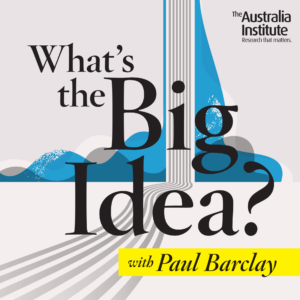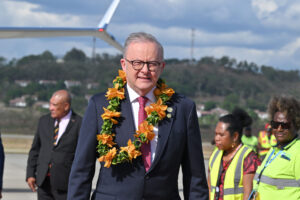On ANZAC Day our nation remembers and honours those who lost their lives in that failed, bloody mission at Gallipoli in 1915. Today, with a war in Europe and instability closer to home, it’s worth contemplating how we can best honour the memory of the fallen by avoiding repeating the mistakes of the past.

When we remember Gallipoli, we think about the people, the soldiers and nurses, who faced the certainty of death – sometimes with stoic bravery and more often with paralysing fear. That is one truth of war. The other truth of war is the indiscriminate slaughter and pointless deaths of civilian populations beyond number.
When the speeches about fighting for freedom and a job well done and the sombre references to sacrifice and valour finally run their course, the abject failure of war is to be found in the tomb of the Unknown Soldier and in the unmarked mass graves of peoples simply caught up in the power contests between distant nations and their leaders. This is as true for the peoples of remote colonies such as Papua New Guinea and the Solomon Islands as it is for the peoples of the great urban centres of Europe.
Politicians and their advisors are again talking up the prospects of war, this time a contest between an autocratic China and the Pacific democracies led by the US. The signature of a cooperation agreement between The Solomons and China has exacerbated their fears and stoked the fires of their rhetoric. There is no doubt that the negotiation and conclusion of that agreement marks a significant strategic moment for Australia, as it does for the US. The belated and over-excited journeys by senior Australian intelligence officials and senior White House officials from the US is too little too late – a triumph of hubris over patient and sustained diplomacy.
Australia’s warrior identity as a fearless defender of freedom is built on bravery in battles that should never have been fought – Gallipoli, Paesschendaele, Tobruk, Milne Bay, Kap Yong, Long Tan – where heroism outweighed futility. The Unknown soldier personifies that.
But myths about ourselves do not hide the fact that in all theatres the civilian populations suffered untold hardship and suffering. This was particularly the case in the Pacific. The “Fuzzy wuzzy angels” – the unintentionally derogatory term for those Papua New Guineans who linger in our national memory as indispensable supporters for the ambulant wounded of the second AIF, were often pressed into service and significantly underpaid, if they were paid at all. And in the minds of so many of the PNG population, whether the foreign forces manoeuvring across their lands were Australian or Japanese, they were all foreigners who were equally unwelcome.
Australia is now fretting about the possibility of a Chinese defence facility in The Solomons. It is important to remember that the Guadalcanal campaign, fought mostly by US soldiers with little Australian assistance (we conducted mopping-up operations in PNG that made little strategic difference), imposed enormous suffering on the peoples of The Solomons, killing their peoples, destroying their villages, littering their lagoons with wrecks and polluting their waters. Unlike Australia, they have little for which they need to thank either their invaders or their liberators.
This is something that the governments of The Solomons, PNG and the other nations of the Pacific might be wise to remember: hosting military facilities that might support armed conflict is rarely a pathway to happiness and prosperity. It is one thing to maintain balanced relationships with important global powers and regional neighbours. It is altogether another to host their military forces.
ANZAC Day is a suitable time to reflect not on the inevitability of war but on the inevitability of change in global power relationships. A partner in 1914, Japan was an enemy by 1939. A regional basket-case in 1949, China emerged a mere half century later as a rising power. It is now the dominant power in Asia. That is something we need to understand and adjust our strategic settings to accordingly. Boisterous confrontation is no way forward: intelligent diplomacy and coalition-building is.
It is fitting that we remember those who have died and suffered in the military service of the nation. But we should avoid creating a mythic national identity based simply on suffering, sacrifice, bravery and endurance – military qualities. We need to recognise that our identity is a dynamic thing, forged from our compassion, forgiveness, generosity, inclusion, reconciliation and resilience. Our future does not depend on fears of wars in we can only lose blood and treasure. Rather, it depends on the confidence that we can collaborate with our neighbours to establish the relationships and the rules by which we protect prosperity and security.
This is the legacy of Australia’s experience of war, and that of our Pacific and Asian neighbours. Lest we forget the horror of war and the high price paid for sabre rattling politicians.
Between the Lines Newsletter
The biggest stories and the best analysis from the team at the Australia Institute, delivered to your inbox every fortnight.
You might also like
Australia has power, why don’t we act like it? | Allan Behm
In a world of uncertainty, it is more important than ever for Australia to stop dismissing ourselves as a ‘middle power’ and start exerting our influence on the global stage.
All the way with the USA?
Despite demands from the hawks that the Australia Government fall in line with the United States over Iran, it’s not inevitable that Australia supports illegal American military intervention.
Pacific nations have just delivered Australia two smackdowns. That’s a big deal.
We need to talk about the Pacific.


